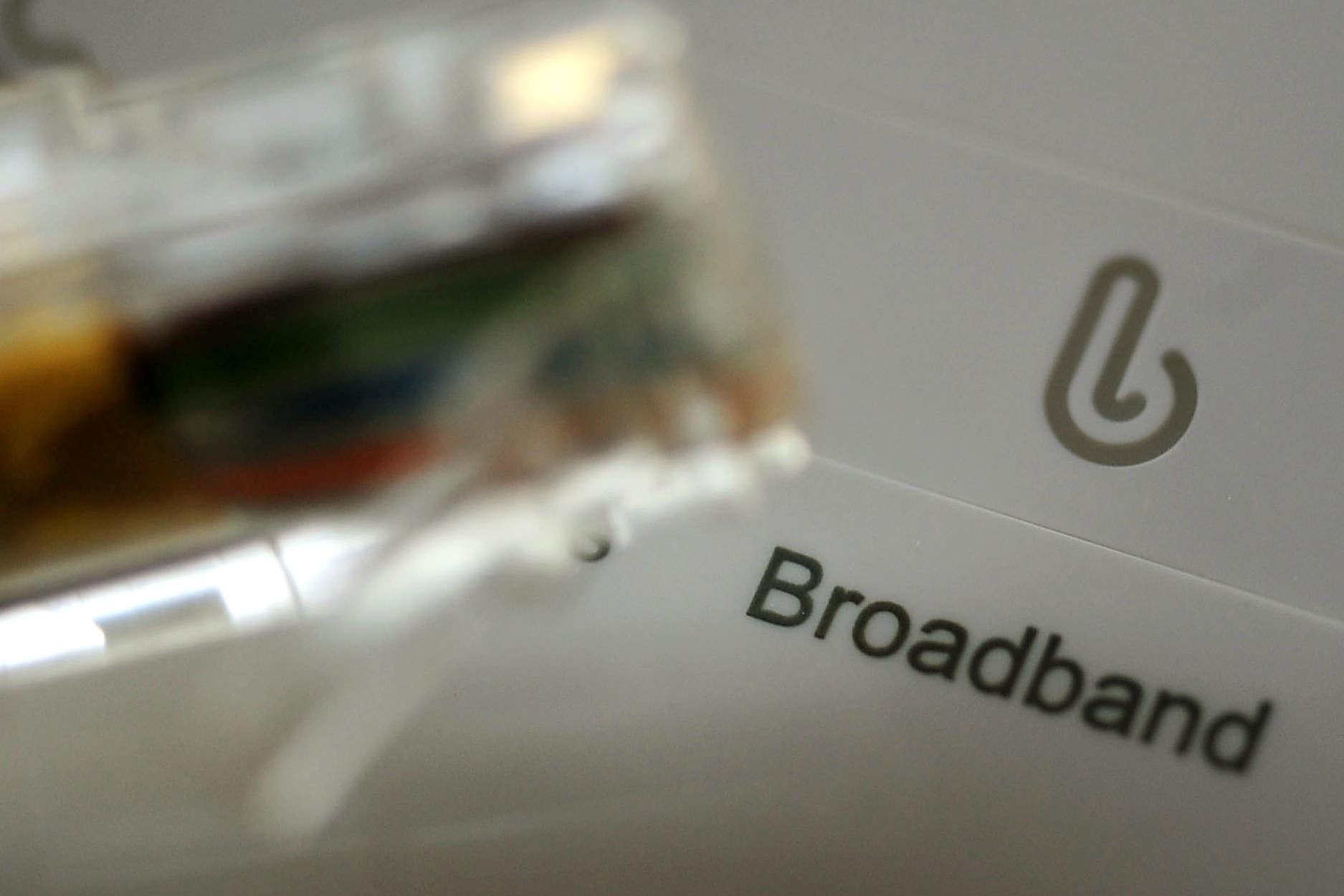Broadband speed fears slowing take-up of social tariffs, Which? warns
Just 3.2% of the 4.2 million households on Universal Credit who are entitled to the discounted deals have taken them up, Ofcom figures show.

Your support helps us to tell the story
From reproductive rights to climate change to Big Tech, The Independent is on the ground when the story is developing. Whether it's investigating the financials of Elon Musk's pro-Trump PAC or producing our latest documentary, 'The A Word', which shines a light on the American women fighting for reproductive rights, we know how important it is to parse out the facts from the messaging.
At such a critical moment in US history, we need reporters on the ground. Your donation allows us to keep sending journalists to speak to both sides of the story.
The Independent is trusted by Americans across the entire political spectrum. And unlike many other quality news outlets, we choose not to lock Americans out of our reporting and analysis with paywalls. We believe quality journalism should be available to everyone, paid for by those who can afford it.
Your support makes all the difference.Households eligible for broadband social tariffs are not taking up the offer over concerns the speed offered will be too slow, a consumer group said.
Just 3.2% or 136,000 of the 4.2 million households on Universal Credit who are entitled to the discounted deals have taken them up, Ofcom figures show.
Which? surveyed more than 2,000 people eligible for fixed broadband social tariffs, finding that 39% of those who could sign up and were aware of them did not intend to do so.
The main reasons cited for not switching were fears that the social tariff speed offered was too slow (44%), not being able to leave a current contract (32%), the deal not being good enough (24%) and lacking information (24%).
People who are struggling financially and trying to make savings during the cost-of-living crisis should not be made second-class citizens when it comes to broadband
Six in 10 eligible households (63%) said they were completely unaware social tariffs existed, with half of this group saying they were likely to switch after hearing about them.
Which? raised concerns that some broadband providers only offered slower than average connections for social tariffs, while others still do not offer them at all – potentially trapping customers who could be eligible for discounted deals on expensive contracts.
The watchdog’s research found that Sky, Now and Vodafone only offered social tariffs for fixed broadband with average speeds of 38 megabits per second (mbps) or less – significantly lower than the median UK download speed of 59mbps.
While these connection speeds would work sufficiently for some households, they might not be enough for those with more demands on their broadband, including families with a number of people using the internet.
Which? said other providers such as EE, Plusnet, Shell and TalkTalk still did not offer their own social tariffs.
Three providers – Virgin Media, BT and Hyperoptic – all offer several social tariff offerings at different speeds at various price points.
Which? is calling on all providers to offer a range of social tariffs to suit every household’s needs and ensure they are properly advertising all their social tariff offerings to new and existing customers.
It has also urged providers to ensure people do not have to pay early termination charges (ETCs) to move to a social tariff, even if they are moving to another provider.
We encourage customers who are struggling financially to get in touch with us so we can work out how best to support them
Rocio Concha, Which? director of policy and advocacy, said: “People who are struggling financially and trying to make savings during the cost-of-living crisis should not be made second-class citizens when it comes to broadband – which is vital for work, education and family life.
“Our research shows that lack of awareness and concerns about slow connections are major factors hampering take-up of social tariffs – so broadband providers need to do more to promote their social tariffs to low-income customers and improve their range of options to ensure that these deals fit customers’ needs.”
Sky said: “We’re focused on providing support to our customers and colleagues who need it most.
“We encourage customers who are struggling financially to get in touch with us so we can work out how best to support them.”